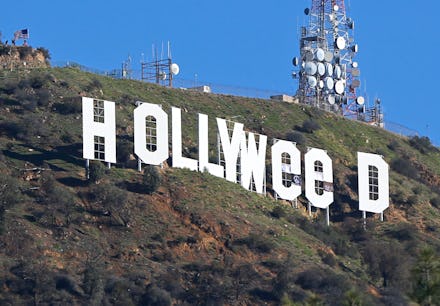Can you be fired from a job for failing a marijuana drug test in California?

On Nov. 8, 2016, marijuana advocates scored a big victory in the Golden State, as 56.4% of voters adopted Proposition 64 — also known as the Adult Use of Marijuana Act — that eliminates marijuana prohibition, according to the New York Times.
Although Prop. 64 allows Californian adults 21 and older to consume cannabis on private properties, carry up to one ounce of weed and grow up to six plants at home, employers are also free to test workers for marijuana use before hiring them, or at any point during their job tenure. The proposition states that employers can fire workers if they test positive, even if they were not under the influence during business hours.
"Employment in the United States is at will," Adam Winkler, a constitutional law professor at UCLA, told the San Jose Mercury News. "That means employers can hire whoever they want, under any conditions they want, with a few exceptions."
Nevertheless, the measure may represent a catch-22 for several companies. Those that uphold draconian drug screening procedures will limit their pool of potential employees, but if companies relax their drug testing rules they would face reputations as being "stoner friendly."
Prop. 64 grants freedom to employers to conduct drug screenings, which could have paved the way for its passage in November 2016. The last time Californians voted on marijuana legislation was 2010, when Prop. 19 authors included a clause that prohibited employers from punishing employees who use marijuana unless it affected their performance. However, the clause was unpopular, and was key in the demise of the proposition.
What's more, even those who use medical marijuana — legal in California since 1996 — are not exempt under employer drug testing. A 2008 California Supreme Court decision stated that employers are not forced to accommodate their employer's medical marijuana use even during non-work hours, because marijuana is still considered illegal under federal law, according to the Mercury News.
Although Golden State residents are able to possess or grow cannabis, they will not have a place to legally purchase recreational marijuana until stores receive licenses, and California has until Jan. 1, 2018, to begin issuing retail permits.